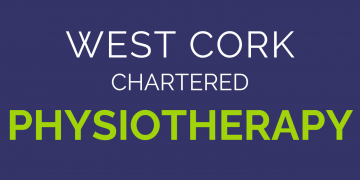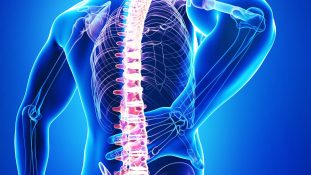Back pain is very common
Back pain affects nearly 80% of people at some stage in their lives says Ronald J. Wisneski, MD, an orthopedic surgeon and specialist in spinal disorders and spine surgery. In Ireland back pain is so prevalent that, as reported in the Independent, "it costs the country more than cancer and diabetes treatment combined". Moreover around 20% of Irish adults suffer with chronic back pain and for some of these, the cause of their pain can take years to diagnose. The Europe-wide initiative, 'Don't Turn Your Back On It', was launched in Ireland to urge people to become more knowledgeable about this common problem
What causes back pain?
The causes are varied. An RTE report on back pain found that while in some cases the cause is physical, "We now know that low back pain can be triggered or increased by non-physical factors which are common in our lives also. These triggers can be psychological (thinking you will not get better, depression, stress, fear of movement), health related (being tired and run down, low energy), lifestyle related (sleep problems, low levels of physical activity, being overweight, smoking) or social (money problems, poor relationships or support at work or home, low job satisfaction, stressful life events like a death or illness)".

There are many myths circulating about the condition. The Independent asked some of Ireland's leading experts to shed some light on the common ailment and concluded that:
1 Back Pain is common and normal
2 Scans are rarely needed
3 Back pain is seldom caused by something being out of place
4 Bed rest is not helpful
5 More back pain does not mean more back damage
6 Surgery is rarely needed
What can be done to help with back pain?
Exercise is top of most experts list. "Many people with pain are afraid of exercise and avoid it as they think it may cause them more problems. However this is not true! We now know that regular exercise helps to keep you and your body fit and healthy, and actually reduces pain and discomfort. It relaxes muscle tension, helps mood and strengthens the immune system once started gradually. All types of exercise are good, with no major differences in effectiveness between them - so pick one you enjoy, can afford and which is convenient".
How can a physiotherapist help?
As the Irish Institute of Chartered Physiotherapists notes, "Chartered Physiotherapists** are qualified to assess an individual’s physical activity... with a view to providing expert treatment and prevention of problems". The British Chartered Society of Physiotherapy found that "80 per cent of people who had physiotherapy for their MSD (musculo-skeletal disorder) were able to carry on working and did not have to go off sick. In particular a physiotherapist will give an expert assessment of the cause and nature of the problem and offer a range of solutions including:
1) Manual therapy to relieve stiffness and improve movement of the joints and muscles of your spine.
2) Movement exercises that restore motion and decrease radiating or referred pain.
3) Progressive strengthening exercises that focuses on core stability and endurance.
**A Chartered Physiotherapist is a university graduate with hospital-based training who has comprehensive knowledge of how the body works and has specialist training in the diagnosis and treatment of injuries.






